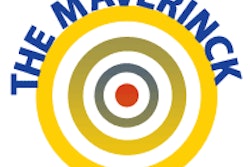
"Culture? Zeitgeist? Here today, gone tomorrow. Seasons are coming and going. Life goes on, progress cannot be restrained. Only fools attempt it ... Some stays, some disappears." Primo Levi. Il Sistema Periodico. Turin: Giulio Einaudi Editore; 1975.
All traits of life are affected by such changes, including medicine. Today we are watching and exposed to an explosive change of our cultures, occidental and oriental -- only few are exempt. The transformation of many societies all over the world into smartphone cultures has materialized at an astounding pace during the last decade. They are a must. Not owning such a device excludes a person from a lot of possible contacts; not having a smartphone is even considered by many people a social stigma.
 Dr. Peter Rinck, PhD, is a professor of diagnostic imaging and the president of the Council of the Round Table Foundation (TRTF) and European Magnetic Resonance Forum (EMRF).
Dr. Peter Rinck, PhD, is a professor of diagnostic imaging and the president of the Council of the Round Table Foundation (TRTF) and European Magnetic Resonance Forum (EMRF).I wrote this in 2012: "Smartphones are toys, or perhaps ersatz shrines one prays to and that can respond, giving contentment and comfort."1, 2
The mass hypnosis and addiction to smartphones and similar devices has multiple facets. Some are well known, such as security risks and patient privacy.3 Others are not easily perceived and hardly discussed, sometimes considered taboo topics.
Smartphones and computers in general change values that have an impact on human relations. Also, this influences the relationship and interaction between doctors and patients. We have to be aware of it, adapt to this new situation, and react if necessary. How, for instance, does one deal with patients, their relatives, and colleagues who are enslaved by their smartphones?
The addiction is wanted and enforced. Dedicated software and platforms are specially designed to create habit-forming routines. A good overview is given in a book on how to develop applications to trap people by Nir Eyal: Hooked: How to Build Habit-Forming Products.4
The best known example is Facebook. It creates a "persistent routine" or behavioral loop based on a fear of missing out. Eyal writes: "Feelings of boredom, loneliness, frustration, confusion, and indecisiveness often instigate a slight pain or irritation and prompt an almost instantaneous and often mindless action to quell the negative sensation ... Gradually, these bonds cement into a habit as users turn to your product when experiencing certain internal triggers."
Social networks dissolve this disquiet for a short period of time like a tranquilizing or pain-relieving drug. Slot-machine psychology is applied to create pervasive connectivity. The user is part of the crowd, recognized, connected -- and checking permanently if it's still true. The number of "likes" and "friends" reinforce the ego, most likely by a small dopamine release as a reward. Thousands of apps, but also "serious" programs such as Wikipedia or online blogs play this game with the users. Newspapers and politicians push smartphones and apps, novelties make the front pages.
Smartphone or Facebook addicts can be stalked and interrupted incessantly and everywhere. They are dependent and under permanent surveillance by the crowd. They rely on finding answers and solutions to questions and problems of their daily life on their smartphone and, after a while, lose their ability to critically deduce and interpret their external conditions. They "outsource" part of their brain to the handy devices.
The amount of scientific research and literature about the side effects of smartphones and apps is steadily growing.
A number of surveys show the average U.S. citizen spends three hours a day on mobile devices; the younger the population the more time is devoted: up to 10 hours a day. However, people rarely use smartphones as telephones, to simply talk to somebody else. Nearly 50% of the 18 to 29 year olds said they used their phones to avoid others around them.5
School teachers and professors observe that students often avoid eye contact and have trouble listening and talking to teachers: "It is as though they all have some signs of suffering from Asperger's syndrome."6 Wherever you go in this world, you can watch people stumbling down the streets or sitting in subway trains staring blankly at their little screens. It is like a mass hypnosis.
The brain adapts to this kind of altered utilization. Certain tracts and regions are "downgraded" because they are little used. This "experience-dependent plasticity" is particularly pronounced in children and adolescents, in the first two decades of life, during which the brain matures. Instead of freeing humans from certain tasks with the help of smartphones, they can become dependent on them. Instead of developing complex neural connectivities in their brains, more simple though robust ones are formed.
Psychologists dealing with smartphone-dependent patients stress that smartphone addicts, in particular teens, but also adults, are living just for the present; they have hardly any mental relations to the past, nor to the future. Their powers of reason and judgment are feeble and in many cases they cannot establish a general perspective. Often, they are devoid of empathy. Their self is replaced by their selfie.
Do we have to change our ways to explain a medical examination to this group of people? Do they interpret our words and explanations differently than others? Can we get their undivided attention when necessary? If they are relatives of a patient, do they care?
At present, dealing with smartphone addicts is mostly based upon improvisation. Those hooked usually don't understand they are caught in a vicious circle.
Homo sapiens, perhaps. Phono sapiens, rather not -- only phony sapiens?
Dr. Peter Rinck, PhD, is a professor of diagnostic imaging and the president of the Council of the Round Table Foundation (TRTF) and European Magnetic Resonance Forum (EMRF).
References
- Rinck PA. Are smartphones changing behavior in medical practice? Rinckside. 2011; 22(12):23-24.
- Rinck PA. Smartphones and tablets -- the sequel. Rinckside. 2012; 23(1):1-2.
- Ridley EL. Radiologists must be aware, vigilant with mobile devices. AuntMinnieEurope.com. http://www.auntminnieeurope.com/index.aspx?sec=rca&sub=ecr_2016&pag=dis&ItemID=612631. 2 March 2016. Accessed 19 July 2016.
- Eyal N with Hoover R. Hooked:How to build habit-forming products. London: Portfolio Penguin; 2014.
- Weisberg J. We are hopelessly hooked. The New York Review of Books. 2016;63 (3):6-9.
- Turkle S. Reclaiming conversation: The power of talk in a digital age. New York: Penguin; 2016.
The comments and observations expressed herein do not necessarily reflect the opinions of AuntMinnieEurope.com, nor should they be construed as an endorsement or admonishment of any particular vendor, analyst, industry consultant, or consulting group.



















